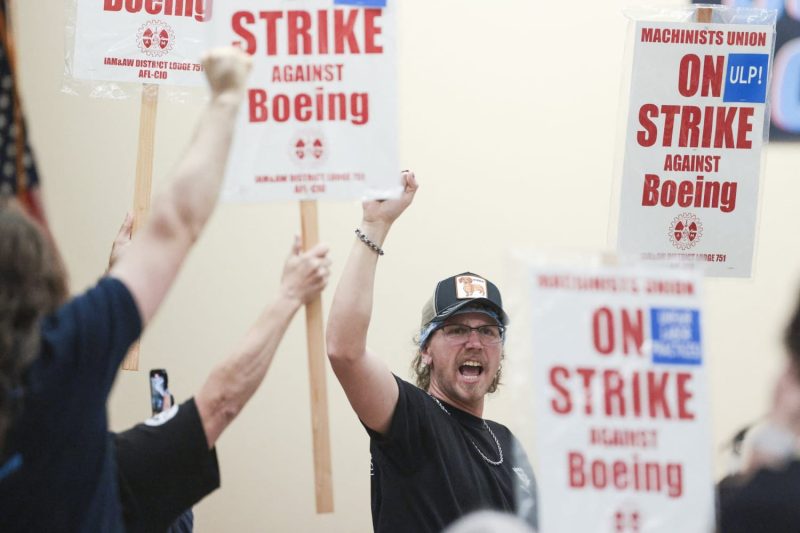
Boeing Workers in Uprising: Massive Strike Follows Contract Rejection!
The backbone of the aviation industry is held together by not only intelligent engineers and agile pilots but also the assiduous factory workers who piece together the aircraft with precision and dedication. Recently, Boeing, a leading American multinational corporation that designs, manufactures, and sells airplanes across the globe, has found itself in the midst of a major uproar from its factory workers who have decided to down their tools citing dissatisfaction with their salaries and working conditions.
After meticulous analysis and consideration, Boeing plant workers overwhelmingly voted against a contract proposed by the company management. The decisive rejection of the new contract reverberated throughout the industry and led to a carefully planned strike by the workers. Their primary grievances included concerns over rising health-care costs, hefty profit margins seen by the organization which do not trickle down to the lower rungs of the organization, and inadequate protection for employee pensions.
The workers, who are critical cogs in Boeing’s operations as they are involved in various manufacturing processes from making fuselage sections to final assembly, felt slighted by the proposed contract terms. It is noteworthy to mention that these workers are part of an ever-growing army of specialized laborers who work relentlessly to satisfy the insatiable global demand for aircraft.
Alarmingly, workers insinuated that the present conditions under the proposed contract would not only affect their welfare negatively but also compromise the quality of the aircraft. They contended that incessant pressure, grueling hours, and constantly operating under understaffed conditions create an environment that is not conducive to maintaining the high level of focus required for such intricate work.
This strike is not merely a local or company issue, it has wide-ranging implications for the global aviation industry. Boeing, being among the largest global airplane manufacturers, has a significant impact on the airline businesses worldwide. Thus, a disruption in Boeing’s manufacturing operations can potentially impact airlines waiting on the delivery of new aircraft, creating a ripple effect throughout the industry.
Moreover, the action of Boeing factory workers sends a powerful message to aviation manufacturers in general. It emphasizes the fact that workers must be adequately compensated and treated well for the roles they play in producing complex machinery, such as aircraft. It is a reminder to corporations to uphold their corporate social responsibility and value their workers as much as they would any other important stakeholder.
Indeed, Boeing’s factory workers have a challenging task consisting of countless hours of work. Their choice to strike may cause temporary disruption and inconveniences, but it serves to highlight substantial issues that require resolution. Ensuring competitive compensation, acceptable working conditions, and respect for labor rights could aid in preventing such instances in the future.
Lastly, the workers’ strike showcases the power of unity within a workforce. It perfectly illustrates how organized labor can prompt change and stand up to the powers that may overlook their welfare. It provides an excellent example of collective bargaining power, giving a new meaning to the phrase strength in numbers. Indeed, each worker’s voice matters, and together, they can reverberate through the industry and potentially lead to improving the standards of the entire working class.
